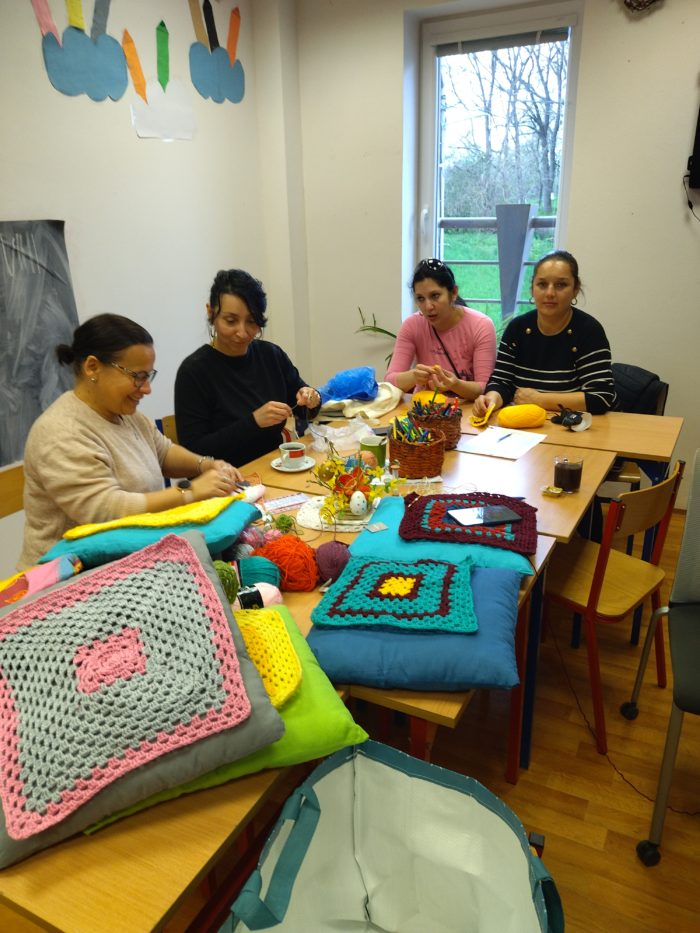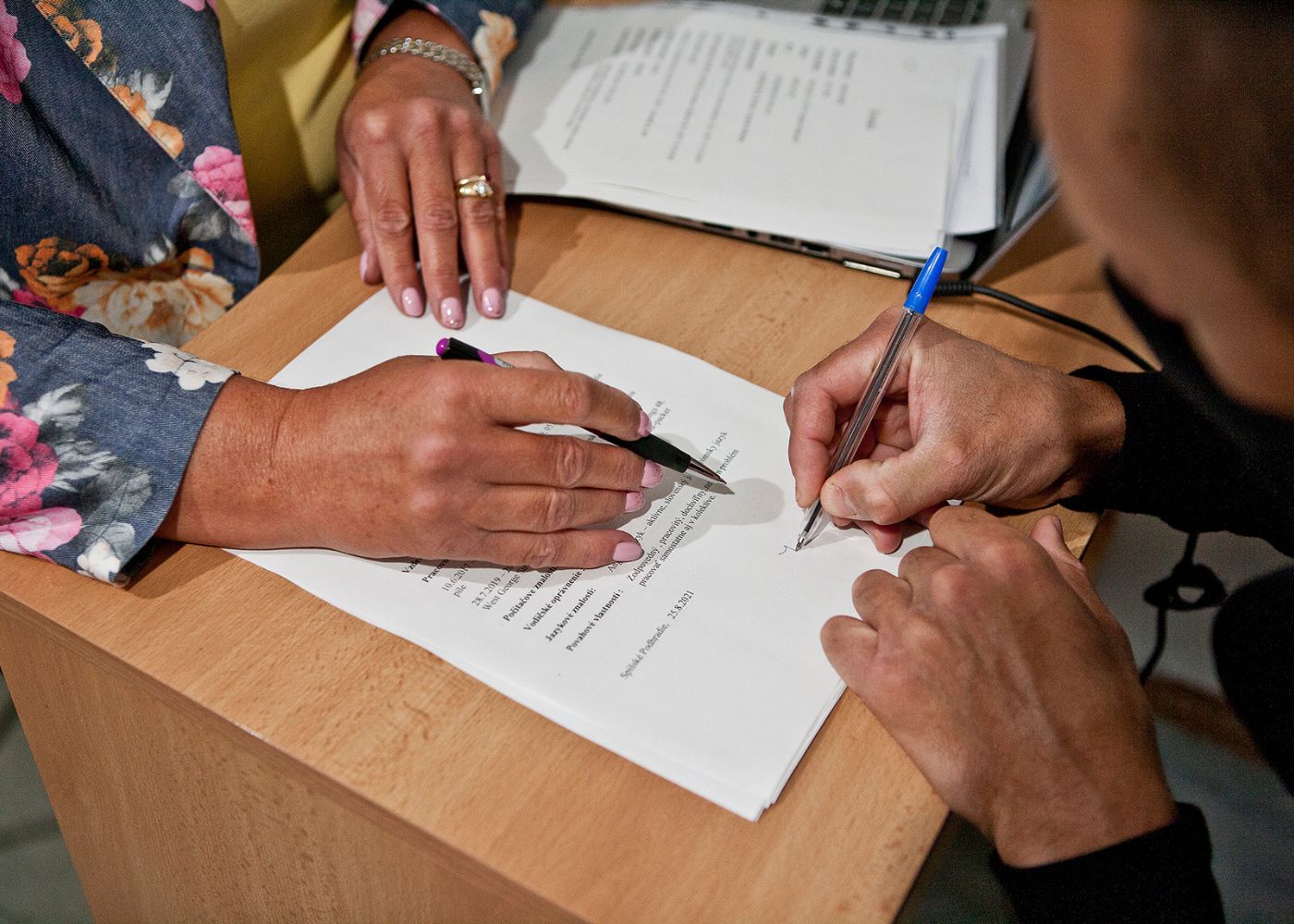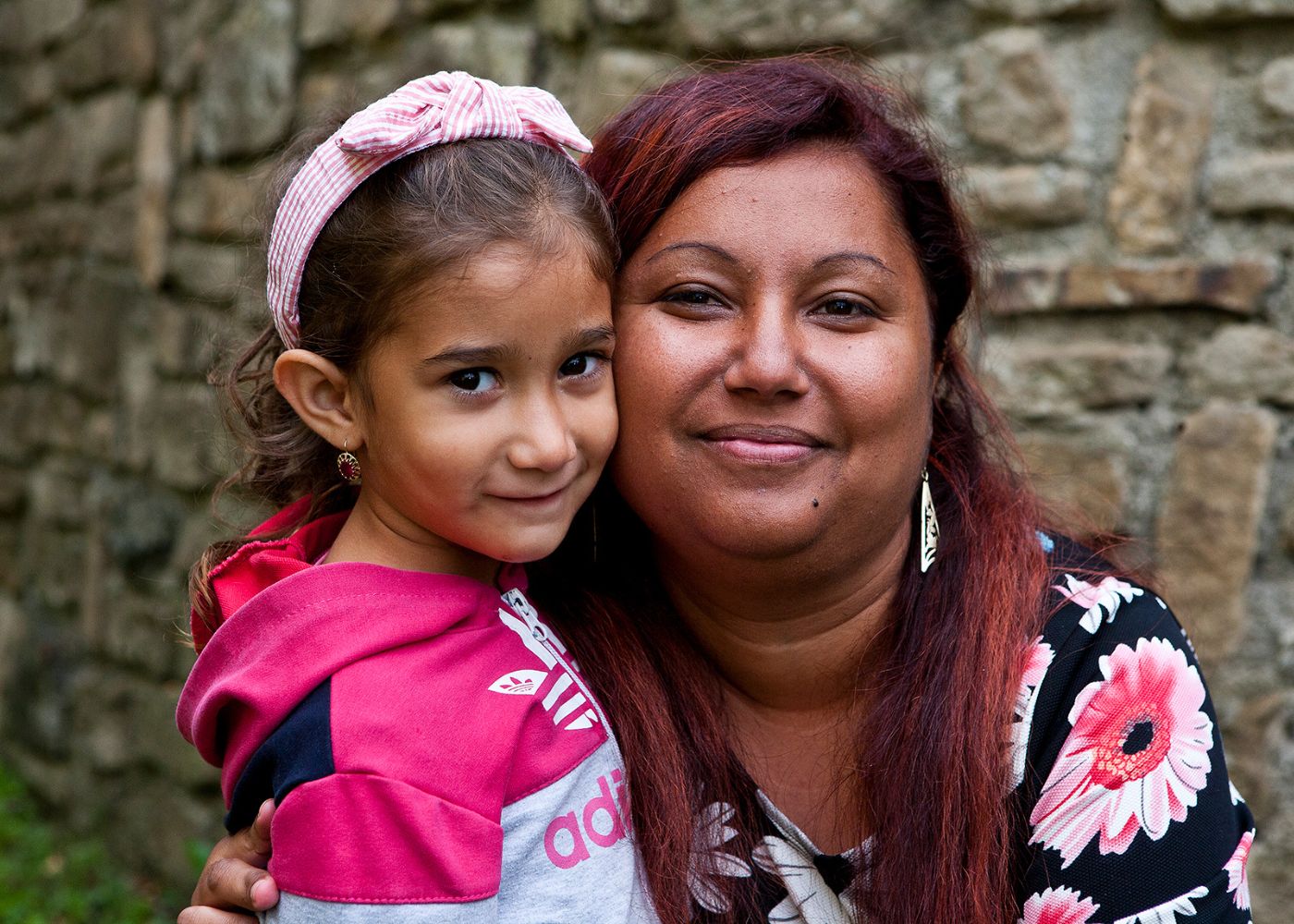Female experts represent the importance of women’s groups: Our role is to give women a voice
We have been working with women who live in social exclusion in our community centers for a long time. Since last summer, also within the framework of women’s groups, which we organize in cooperation with the Vyrovnávanie šancí association. We talked to Janka Urban and Edita Kovář, who lead the women’s groups, about how these meetings take place and what they give women. They were also joined by Monika Bosá, an expert from the EsFem association. In which of our communities do you organize women’s groups and how often? EK: We go to three community centers: Roškovce, Kojatice and Petrovany, where we are twice a month. We each do our part, Janka has women’s groups and I work with parents. They are mostly mothers, but I often have fathers there as well. In addition we talk to them about common things, which are focused either on personal development or on other topics. I also give them some tasks that they could use to influence their children. These are simple practical things, for example a worksheet, or learning a poem and drawing something, so that they can come home with something and show the children something.
Our task is to give women a voice, because they are not used to thinking for themselves. Sharing sorrows and joys is already a huge superstructure, they usually only talk about practical things.You said that the meetings are rather unstructured. What exactly does that mean? JU: We started with a much more structured form of meeting. I had individual activities planned in my head and where they should lead. However, I often found myself dragging the women somewhere they didn’t even want to go. It meant for me that I should prepare less and go with the flow. Our goal is not to solve the tasks correctly, but to develop the debate and, if it develops, to continue it. MB: The important thing is that women take the initiative. Empowerment comes from them being the ones who know. They have shown that they can take care of children when they are sick. The experience of being appreciated by someone is immensely empowering. And when they say what they want, and we listen to it, that some wise teacher comes who had a prepared program and suddenly she listens to them, is just as fundamental. So can it be said that even women from excluded Roma communities can teach you something? JU: I remember a situation in one community where we knew we would have to fundamentally change our approach. I came there and said: look, I have nothing ready today. I only came to talk to you and agree on what we will do here together. My throat was dry for the first fifteen minutes because I was the only one talking. But gradually we got it going and came up with some ideas that they would like to do. They balked at some, for example, when I suggested that when it warmed up, we could go to the settlement and they could teach me something. When I asked why not, they said they were ashamed. And when I asked what could help overcome that shame, they admitted that maybe time, because we don’t know each other well. But it emerged from this debate that they might enjoy knitting. Helenka, who is our link in the community, knows how to knit, the other mothers did not know how to knit, so we decided to teach knitting together. I’m the most awkward member in that group. But it works, women are relaxed when they are knitting. When they repeat the activity and have to focus on it, they can relax their heads.













